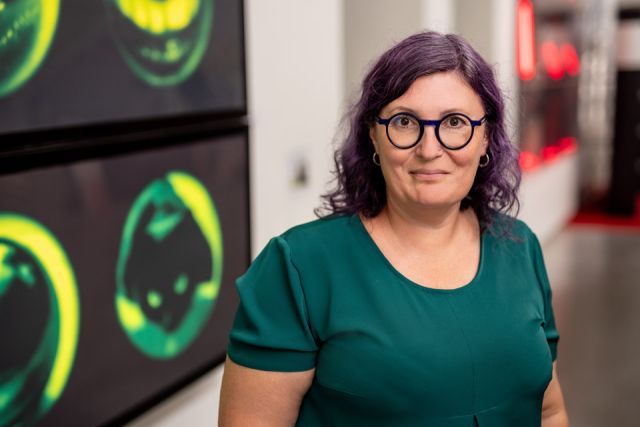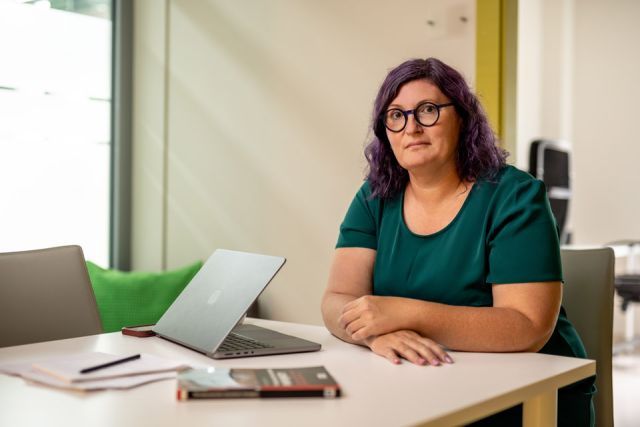Principal Investigator
:
prof. dr hab. Agata Gąsiorowska
SWPS University
Panel: HS6
Funding scheme
: OPUS 21
announced on
15 March 2021
Being part of modern society, we engage in various relationships. Some are close, intimate, and based on care, such as between close friends or parents and children. Others are limited to specific transactions and concentrate on gains and losses, such as between buyers and sellers. Psychologists call the former “communal” and the latter “market” relationships. Some relationships are even more complicated because they include communal and market elements, such as providing care for others for monetary benefit. For example, teachers who care for young students do not expect direct compensation from the children but receive a salary from the school administration. In all these cases, people want to have a “good relationship” with others and can achieve that by building trust. But is trusting our close friends and family members psychologically the same as trusting our business partners or other market actors? And what happens when these two types are mixed up in a single situation, such as when we ask a close friend for a loan, and they agree but ask us to sign a written contract?
 prof. Agata Gąsiorowska, photo Łukasz Bera
In our project, entitled “Zaufanie jako zjawisko polimorficzne. Psychologiczna specyfika zaufania w relacjach wspólnotowych i rynkowych” [“Trust as a polymorphous phenomenon. The psychology of trust in communal-sharing and market-pricing relations”], we have turned our attention to the interplay between trust and different relationship types. Until now, most studies have analyzed trust in the confines of a specific field, such as psychology, economics, or organizational behavior, making it difficult to compare research results across disciplines. As a consequence, we still do not know how trust dynamics in the communal domain differs from its dynamics in the organizational or market-exchange domain. By contrast, our approach to this project is interdisciplinary. Our goal is to integrate the behavioral approach, which involves measuring trust as a behavior, with the psychological approach, which analyses the cognitive, affective, and motivational aspects of the formation of trust in the two types of relationships.
prof. Agata Gąsiorowska, photo Łukasz Bera
In our project, entitled “Zaufanie jako zjawisko polimorficzne. Psychologiczna specyfika zaufania w relacjach wspólnotowych i rynkowych” [“Trust as a polymorphous phenomenon. The psychology of trust in communal-sharing and market-pricing relations”], we have turned our attention to the interplay between trust and different relationship types. Until now, most studies have analyzed trust in the confines of a specific field, such as psychology, economics, or organizational behavior, making it difficult to compare research results across disciplines. As a consequence, we still do not know how trust dynamics in the communal domain differs from its dynamics in the organizational or market-exchange domain. By contrast, our approach to this project is interdisciplinary. Our goal is to integrate the behavioral approach, which involves measuring trust as a behavior, with the psychological approach, which analyses the cognitive, affective, and motivational aspects of the formation of trust in the two types of relationships.
Our projects started with a meta-analysis, which showed that experimental design features that cued a communal-sharing mode did not have a large effect on the level of trust in the Trust Game, while market-pricing cues increased its level. We also created experiments to test the impact of communal-sharing or market-pricing cues and their consistency on the perception of a given situation as a communal or market relationship, as well as on trust. In another series of experiments, we tested how introducing means of control might change the perception of market and communal relations and affect trust in these relationships. In the next part of the project, we will focus on the factors and mechanisms that favor trust in the market and communal relations, testing various mechanisms potentially responsible for differences in trust in these two types of relationships.
We expect our results to contribute to the development of disciplines such as social and economic psychology and behavioral economics, as well as create a platform for designing further studies on the correlations between the relational context and trust. Our research lays the basis for a better understanding of the conditions in which people are more likely to trust others, allowing us to build socially beneficial solutions to minimize the negative consequences of lack of trust.
Project title: Trust as a polymorphous phenomenon. Psychological specificity of trust in communal-sharing and market-pricing relations
prof. dr hab. Agata Gąsiorowska
Her research focuses on issues that straddle the intersection of social and economic psychology. Her main interests include the psychological functions of money, individual differences in attitudes towards money, the market mentality and its consequences, and the non-utilitarian functions of buying. Her book, co-authored together with Katarzyna Sroczyńska and entitled “Pieniądze albo życie. Jak pieniądze wpływają na nasze zachowanie, emocje i relacje?” [“Your Money or Your Life. How Money Influences Our Behavior, Emotions, and Relationships”] (2024) provides a popular account of the scientific knowledge at the center of her research.


